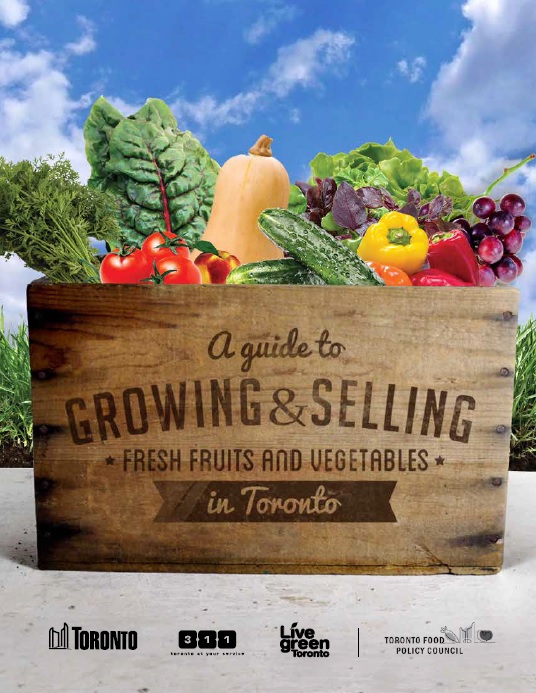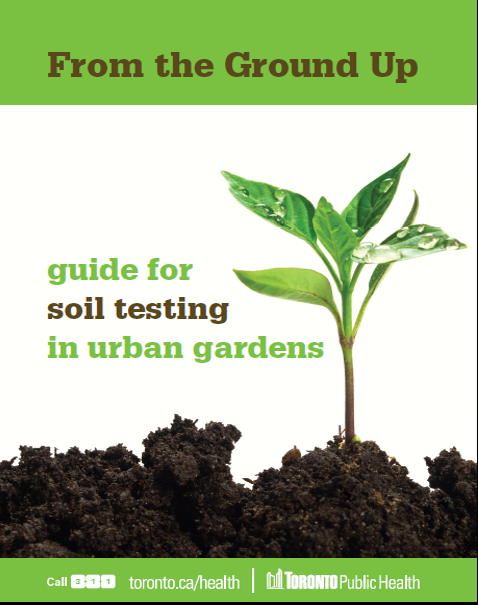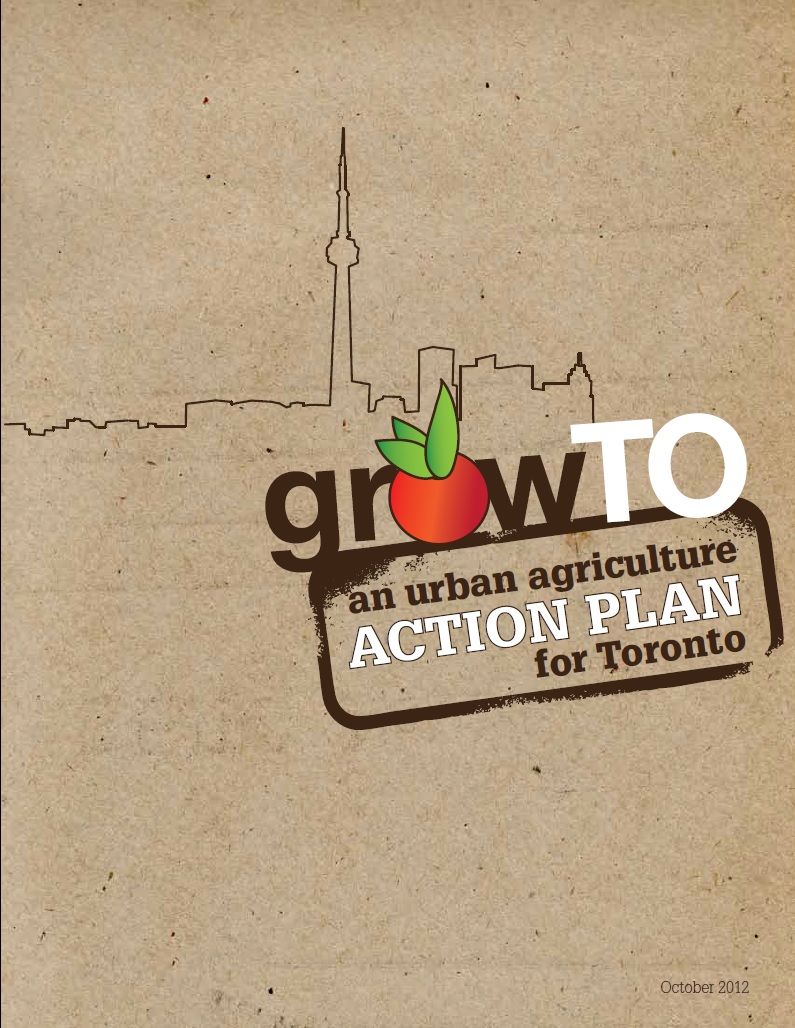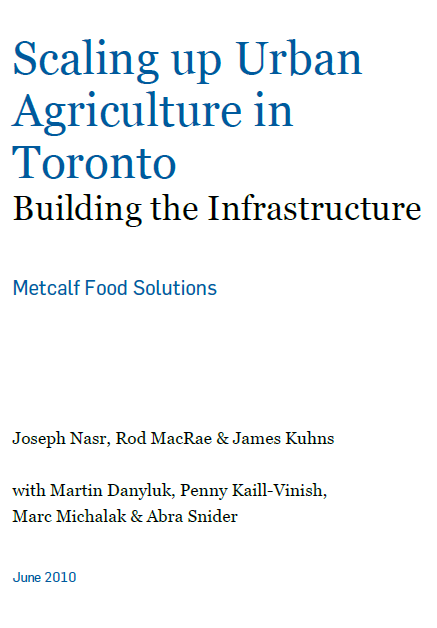Key Documents & Policy
The following documents provide important background on urban agriculture in Toronto
 Guide to Growing and Selling Fresh Fruits and Vegetables in Toronto (2015)
Guide to Growing and Selling Fresh Fruits and Vegetables in Toronto (2015)
More and more people are interested in growing food not only for their own consumption but to sell to others.This guide explores the issues related to growing and selling fruit and vegetables, providing answers to common questions, presenting key information about rules, regulations, health and safety, and offering inspirational stories of successes achieved and opportunities seized!
From the Ground Up: Guide for Soil Testing in Urban Gardens (updated June 2017)
This guide is for people who want to start an urban garden and want to get more information about the safety of their soil. It helps you assess the level of concern, research the history of your site, test the soil and take actions to reduce risk.
GrowTO Urban Agriculture Action Plan (2012)
The GrowTO process launched in 2011 and consisting of four moderated discussions and two action-planning sessions designed to explore in-depth the issues identified in the Scaling up paper. The result was 2012 GrowTO Urban Agriculture Action Plan.
Metcalf Solutions Paper - Scaling up Urban Agriculture in Toronto (2010)
In 2010 the Metcalf Foundation published Scaling Up Urban Agriculture in Toronto: Building the Infrastructure, outlining key opportunities and barriers to growing food in Toronto. Five areas of urban agriculture infrastructure are identified with 38 recommendations being made on how to build a firm foundation for expanding urban agriculture in Toronto.



